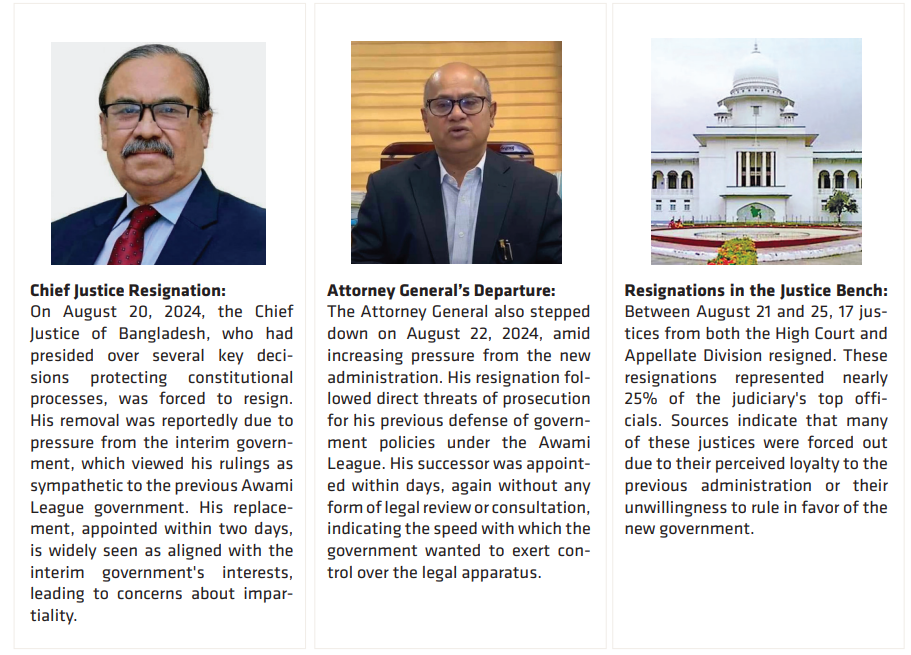
Judicial Reshuffle
Appointment of New Justices: In the aftermath of these resignations, the interim government rapidly filled the vacant positions with 24 newly appointed justices. These appointments bypassed the usual judicial council review, raising concerns about the legal integrity of the process. Legal scholars have noted that many of these justices have a history of political ties to Dr. Yunus and his affiliates, which could compromise their ability to rule independently.
Change in Review Powers: The newly installed judiciary has seen its review powers diminished under amendments passed by the interim government. Previously, the judiciary had the authority to review and overturn executive actions deemed unconstitutional. However, the new amendments have reduced the scope of judicial review by nearly 50%, preventing courts from intervening in many executive decisions.
Political and Legal Implications

Dismissal of Challenges: Opposition political parties and civil society groups quickly filed lawsuits challenging the legality of Dr. Yunus's government and its actions. However, more than 75% of these cases were dismissed by the newly appointed justices, often without hearing the arguments. This has fueled concerns that the judiciary is being used as a tool to legitimize the interim government’s illegal actions rather than serve as an independent check on power.
International Criticism: International organizations, including Human Rights Watch and the International Bar Association, have expressed serious concerns about the erosion of judicial independence in Bangladesh. In a joint statement, 45 legal advocacy groups condemned the reshuffle, calling it a “grave assault on judicial autonomy.” They warned that the judiciary's perceived alignment with the government could have lasting repercussions on the rule of law in the country.
The Judiciary’s Role Moving Forward
The judiciary reshuffle has sparked deep concerns about the future of judicial independence in Bangladesh. With many of the newly appointed justices seen as government loyalists, and the judiciary’s review powers curtailed, the courts may no longer act as a meaningful check on executive overreach.
Public Trust in the Judiciary: A recent survey found that 58% of Bangladeshis now believe the judiciary is no longer independent, a sharp rise from 25% before the August 5 power grab. This erosion of trust could have longterm consequences for the legal system, as fewer people may feel confident seeking justice through the courts.
Impact on Governance: The judicial reshuffle has allowed the interim government to solidify its hold on power, as it no longer faces the threat of legal challenges from an independent judiciary. However, this consolidation of power has come at the cost of Bangladesh's democratic institutions, with the judiciary no longer serving as a balancing force in governance.